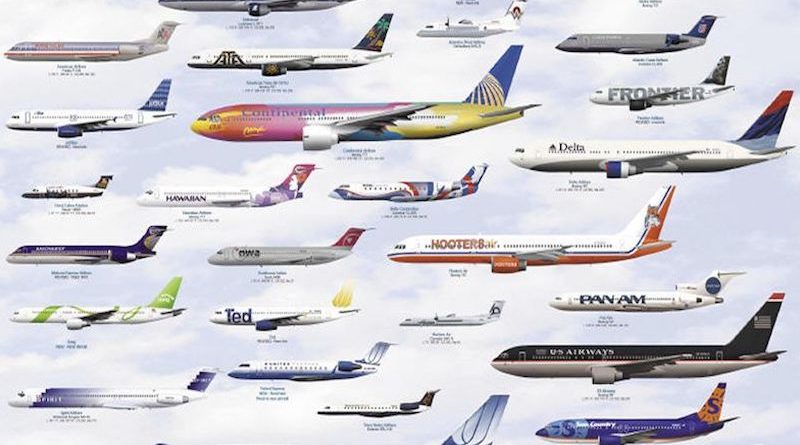FG Gives Airlines Conditions for Flight Resumption
Chinedu Eze
The federal government has given airlines a checklist to comply with before they would be certified to resume flight operation, which has been tentatively fixed for June 21, THISDAY has learnt.
These conditions include all the protocols to prevent infection and spread of COVID-19 in flight operations in order to protect travellers; the safety of flights to ensure prevention of accidents and incidents and training requirements that must be met by technical personnel of airlines.
THISDAY learnt that while many charter and private operators have met these conditions, some of the scheduled commercial operators were yet to do so.
The General Manager, Public Affairs of the Nigerian Civil Aviation Authority (NCAA), Mr. Sam Adurogboye, told THISDAY yesterday that the regulatory body had been working with airlines to meet the checklist before the June 21 reopening date was announced.
According to him, airlines that do not meet the directives as contained in the checklist would not be allowed to resume operations.
He said: “There is a checklist. You must show that you have maintained your aircraft; your personnel must undergo the required training and meet the given protocols to ensure that passengers are protected onboard your flight.
“This has been an ongoing process before the date of resumption was announced and some of the airlines have met these conditions because you will notice that Air Peace is already operating special services. It means they have met the condition to operate.”
Adurogboye said the June 21 tentative date for flight resumption could be real because it would give airlines and the airports enough time to meet the requirements.
“Based on the checklist, we are looking at how airlines maintain their aircraft, disinfecting them and the airports getting disinfected too. They have to acquire all that is needed.
“For example, you cannot run out of sanitisers. So, you must have enough of them before you resume. On training, workshops may not be required because these are people who are already well trained and experienced. So, some of the training may be done online and this will include how the cabin crew will attend to the passengers. The training is something that can be done within a few days,” he stated.
THISDAY investigations revealed that only about 13 airlines have met the conditions given to them by NCAA and many of them are charter and private operators.
“They must have to meet the health guidelines, licensing, and evidence that they have agreed with the passengers who had already bought tickets before the lockdown on whether to refund them or they will still use the tickets.
“We are also looking at the indebtedness the airlines have with suppliers like fuel marketers, catering services, and others. We have already been doing all these before the slated date by the federal government.
“Maybe, some of the airlines will become serious now that the date of resumption is out because some have been lackadaisical,” a senior official of the NCAA told THISDAY.
The Chief Operating Officer of Aero Contractors, Captain Ado Sanusi, told THISDAY that the airline had been working hard to meet the requirements in the checklist and had met about 80 per cent of them.
He noted that some of the requirements needed external evaluation and training, like the training that would be conducted by the Nigeria Centre for Disease Control (NCDC), which is working with the World Health Organisation (WHO).
According to him, NCAA stipulated that NCDC would train airlines’ cabin crew on how to handle passengers to ensure that they are protected from the virus while onboard flights.
He said: “We have submitted all the documents needed to restart operations. We are 80 per cent ready. Our aircraft are airworthy. We have placed them ready for emergency flights and airlift of medical supplies.
“We are being guided by the manual. Training is ongoing. NCAA directed that we do some training online and we have done that in the first phase and we did well. Our certification is 80 per cent completed. So we should be ready within a week or two.”
Sanusi added that NCAA directed that the Ministry of Environment would fumigate the aircraft, “but we will check whether their chemical suits the aircraft manufacturer’s requirements.”
“Our aim is to ensure that passengers are protected. We are looking beyond the protocols recommended by NCAA to ensure that passengers and our staff are protected,” Sanusi said.
On the report that government has directed that airlines should carry 50 to 70 per cent of the aircraft capacity, Sanusi said there was no scientific proof that the less number of passengers you carry in the aircraft the less possibility of their getting infected in the cabin.
He explained that what is critical is to make the cabin safe so that one passenger or 100 passengers would be safe.
“Based on the recommendation by the International Civil Aviation Organisation (ICAO) and the International Air Transport Association (IATA), physical distancing in the aircraft cabin is not recommended because it is commercially unviable.
“Why not make the cabin a safe place for every passenger and every staff? That is our goal, to make the cabin safe for everyone. Passengers will wear their mask and we reduce physical contact as much as possible. IATA has noted that when all the protocols are followed infection inside the aircraft is almost zero,” Sanusi added.




